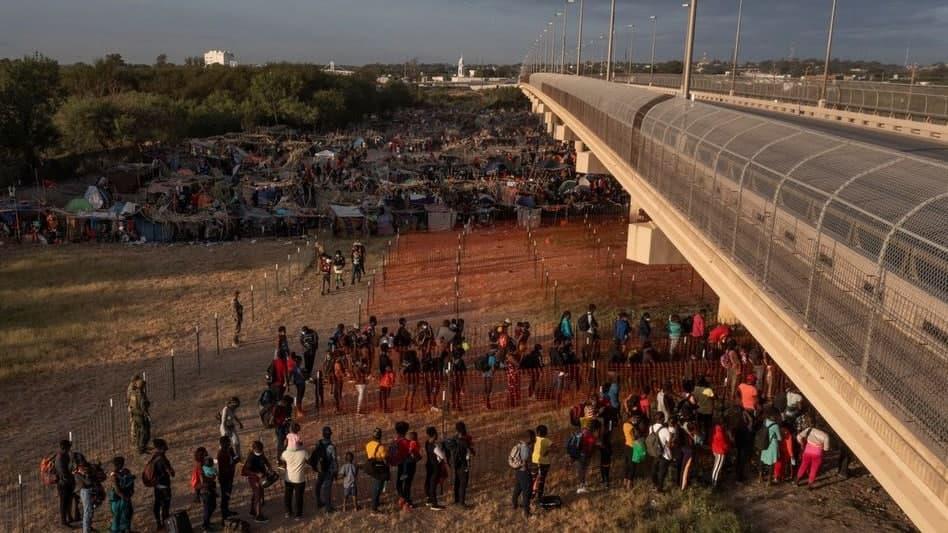WASHINGTON, Sep 22 (CGTN) - Amid deteriorating conditions in migrant camps on both sides of the U.S.-Mexico border, U.S. authorities on Wednesday tried to deal with thousands of the mostly Haitian migrants that have gathered, releasing some in south Texas while deporting others on flights.
Wade McMullen, an attorney with the Robert F. Kennedy Human Rights organization, said several hundred people, mostly pregnant women and parents with children, had been released in Del Rio, Texas over the past several days, straining resources at a local volunteer-run welcome center.
"The center does not have overnight capacity. People are sleeping at the bus station outside or outside of the airport, waiting for their bus or their plane" to join family or other sponsors in the United States, he said.
The U.S. government said it was continuing to fly hundreds of people, including families, back to Haiti, which has been hit by recent political turmoil and natural disasters.
It has been trying to clear the encampment under the international bridge in Del Rio, which reached as many as 14,000 people at its peak. Authorities have moved thousands away for immigration processing and deported more than 500 Haitians since Sunday.
A Department of Homeland Security (DHS) spokesperson said those who cannot be expelled under a sweeping Trump-era public health order known as Title 42 will be placed in immigration hearings, without specifying who would qualify for those exemptions.
Biden ended the expulsion of unaccompanied children under Title 42 but has continued to expel some families. The spokesperson said people who are not expelled are either detained or released with a notice to appear in immigration court, adding that everyone passes background checks and has their biometric information collected.
McMullen said family members who are not parents or legal guardians of minor children are being separated from the rest of their families. In one instance, a grandmother who had been traveling with her daughter and grandson was separated from them, he said. The daughter and grandson were released, not knowing where the grandmother was.
Meanwhile, thousands still languished at the camp, waiting to be processed after being issued color-coded tickets.
Most of the Haitians have not arrived direct from Haiti. Many had previously tried to settle in South America, but recounted difficulties finding work amid pandemic-related restrictions and the economic downturn.
Democrats have expressed anger over an incident over the weekend in which mounted U.S. border agents used reins like whips to intimidate migrants trying to cross the river. DHS Secretary Alejandro Mayorkas said the agents involved had been pulled from front-line duties.
The expulsion flights to Haiti have faced criticism. There is profound instability in the Caribbean nation, the poorest in the Western Hemisphere, where a presidential assassination, rising gang violence and a major earthquake have spread chaos in recent weeks.
Filippo Grandi, the head of the UN refugee agency, has warned that expulsions to such a volatile situation might violate international law.
Some of the deported Haitian migrants on Tuesday reacted angrily as they stepped off flights in Port-au-Prince after spending thousands of dollars on arduous voyages to reach the U.S. border.





